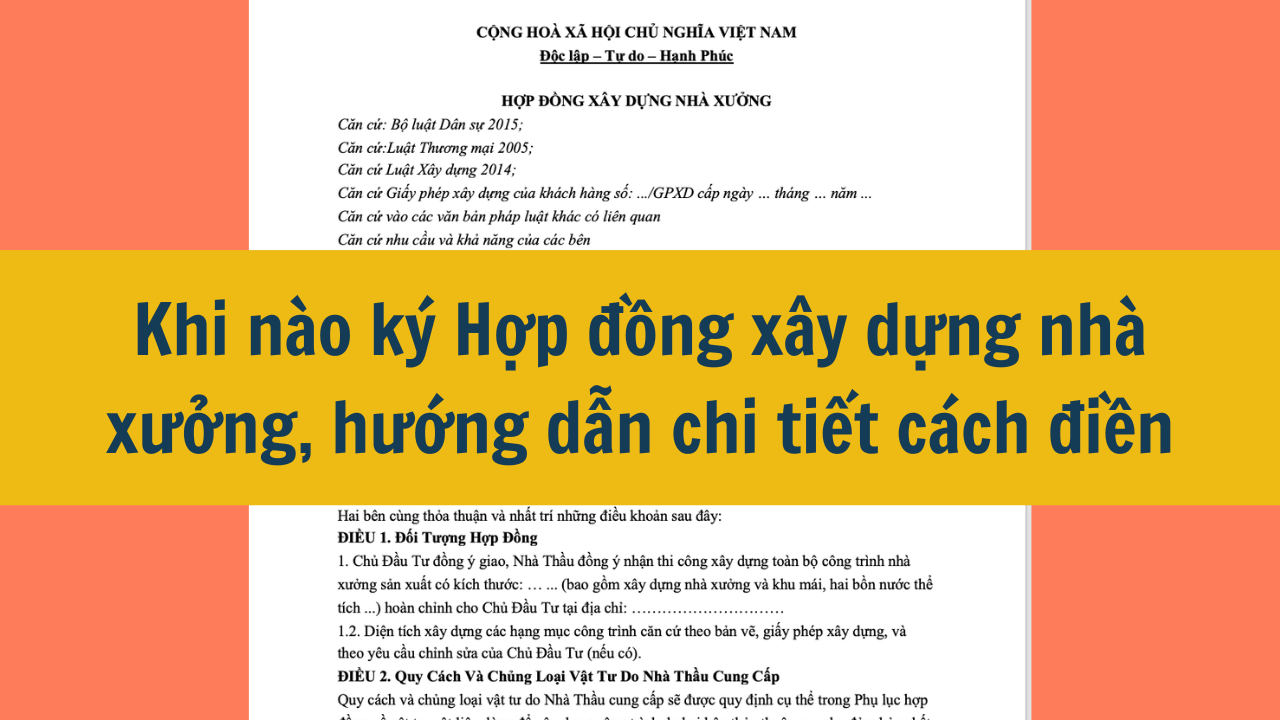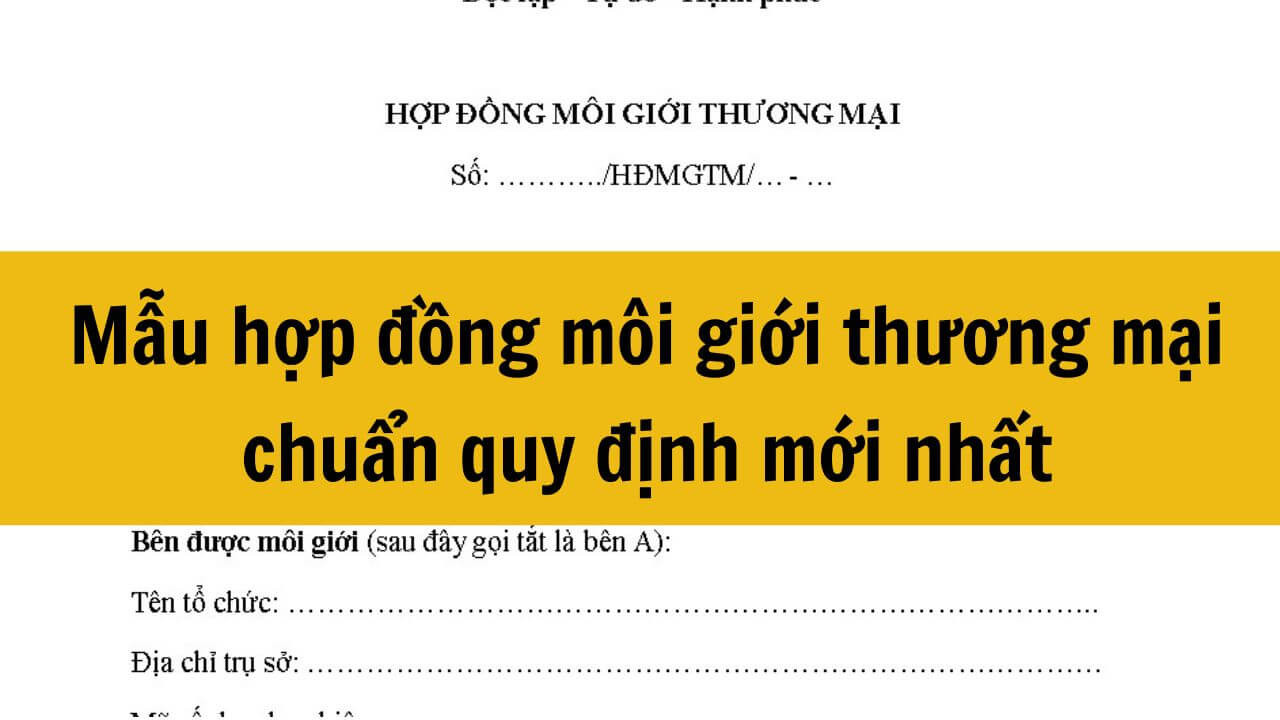 Tìm kiếm
Tìm kiếm
Chương VII Luật Thương mại 2005 : Chế tài trong thương mại và giải quyết tranh chấp trong thương mại
| Số hiệu: | 36/2005/QH11 | Loại văn bản: | Luật |
| Nơi ban hành: | Quốc hội | Người ký: | Nguyễn Văn An |
| Ngày ban hành: | 14/06/2005 | Ngày hiệu lực: | 01/01/2006 |
| Ngày công báo: | 22/07/2005 | Số công báo: | Từ số 24 đến số 25 |
| Lĩnh vực: | Thương mại | Tình trạng: | Còn hiệu lực |
TÓM TẮT VĂN BẢN
6 nguyên tắc cơ bản trong hoạt động thương mại
Luật Thương mại 2005 được Quốc hội thông qua ngày 14/6/2005, gồm 9 chương và 324 điều, có hiệu lực kể từ ngày 01/01/2006.
1. Luật quy định 6 nguyên tắc cơ bản trong hoạt động thương mại
Trong đó có:
· Bình đẳng trước pháp luật của thương nhân trong hoạt động thương mại
· Tự do, tự nguyện thoả thuận trong hoạt động thương mại, bảo vệ lợi ích chính đáng của người tiêu dùng...
· Hợp đồng mua bán hàng hoá được thể hiện bằng lời nói, bằng văn bản hoặc được xác lập bằng hành vi cụ thể...
2. Hàng hóa lưu thông trong nước, hàng hóa xuất khẩu, nhập khẩu phải có nhãn hàng hóa
Nhãn hàng hoá là bản viết, bản in, bản vẽ, bản chụp của chữ, hình vẽ, hình ảnh được dán, in, đính, đúc, chạm, khắc trực tiếp trên hàng hoá, bao bì thương phẩm của hàng hoá hoặc trên các chất liệu khác được gắn lên hàng hoá, bao bì thương phẩm của hàng hoá...
Trường hợp bên bán đã giao chứng từ liên quan đến hàng hoá trước thời hạn thỏa thuận thì bên bán vẫn có thể khắc phục những thiếu sót của các chứng từ này trong thời hạn còn lại...
3. Xác định giá dịch vụ trương trường hợp không có thỏa thuận
Trường hợp không có thoả thuận về giá dịch vụ, không có thoả thuận về phương pháp xác định giá dịch vụ và cũng không có bất kỳ chỉ dẫn nào khác về giá dịch vụ thì giá dịch vụ được xác định theo giá của loại dịch vụ đó trong các điều kiện tương tự về phương thức cung ứng, thời điểm cung ứng, thị trường địa lý, phương thức thanh toán và các điều kiện khác có ảnh hưởng đến giá dịch vụ...
Văn bản tiếng việt
Văn bản tiếng anh
1. Buộc thực hiện đúng hợp đồng.
2. Phạt vi phạm.
3. Buộc bồi thường thiệt hại.
4. Tạm ngừng thực hiện hợp đồng.
5. Đình chỉ thực hiện hợp đồng.
6. Huỷ bỏ hợp đồng.
7. Các biện pháp khác do các bên thoả thuận không trái với nguyên tắc cơ bản của pháp luật Việt Nam, điều ước quốc tế mà Cộng hòa xã hội chủ nghĩa Việt Nam là thành viên và tập quán thương mại quốc tế.
Trừ trường hợp có thoả thuận khác, bên bị vi phạm không được áp dụng chế tài tạm ngừng thực hiện hợp đồng, đình chỉ thực hiện hợp đồng hoặc huỷ bỏ hợp đồng đối với vi phạm không cơ bản.
1. Bên vi phạm hợp đồng được miễn trách nhiệm trong các trường hợp sau đây:
a) Xảy ra trường hợp miễn trách nhiệm mà các bên đã thoả thuận;
b) Xảy ra sự kiện bất khả kháng;
c) Hành vi vi phạm của một bên hoàn toàn do lỗi của bên kia;
d) Hành vi vi phạm của một bên do thực hiện quyết định của cơ quan quản lý nhà nước có thẩm quyền mà các bên không thể biết được vào thời điểm giao kết hợp đồng.
2. Bên vi phạm hợp đồng có nghĩa vụ chứng minh các trường hợp miễn trách nhiệm.
1. Bên vi phạm hợp đồng phải thông báo ngay bằng văn bản cho bên kia về trường hợp được miễn trách nhiệm và những hậu quả có thể xảy ra.
2. Khi trường hợp miễn trách nhiệm chấm dứt, bên vi phạm hợp đồng phải thông báo ngay cho bên kia biết; nếu bên vi phạm không thông báo hoặc thông báo không kịp thời cho bên kia thì phải bồi thường thiệt hại.
3. Bên vi phạm có nghĩa vụ chứng minh với bên bị vi phạm về trường hợp miễn trách nhiệm của mình.
1. Trong trường hợp bất khả kháng, các bên có thể thoả thuận kéo dài thời hạn thực hiện nghĩa vụ hợp đồng; nếu các bên không có thoả thuận hoặc không thỏa thuận được thì thời hạn thực hiện nghĩa vụ hợp đồng được tính thêm một thời gian bằng thời gian xảy ra trường hợp bất khả kháng cộng với thời gian hợp lý để khắc phục hậu quả, nhưng không được kéo dài quá các thời hạn sau đây:
a) Năm tháng đối với hàng hoá, dịch vụ mà thời hạn giao hàng, cung ứng dịch vụ được thoả thuận không quá mười hai tháng, kể từ khi giao kết hợp đồng;
b) Tám tháng đối với hàng hoá, dịch vụ mà thời hạn giao hàng, cung ứng dịch vụ được thoả thuận trên mười hai tháng, kể từ khi giao kết hợp đồng.
2. Trường hợp kéo dài quá các thời hạn quy định tại khoản 1 Điều này, các bên có quyền từ chối thực hiện hợp đồng và không bên nào có quyền yêu cầu bên kia bồi thường thiệt hại.
3. Trường hợp từ chối thực hiện hợp đồng thì trong thời hạn không quá mười ngày, kể từ ngày kết thúc thời hạn quy định tại khoản 1 Điều này bên từ chối phải thông báo cho bên kia biết trước khi bên kia bắt đầu thực hiện các nghĩa vụ hợp đồng.
4. Việc kéo dài thời hạn thực hiện nghĩa vụ hợp đồng quy định tại khoản 1 Điều này không áp dụng đối với hợp đồng mua bán hàng hóa, cung ứng dịch vụ có thời hạn cố định về giao hàng hoặc hoàn thành dịch vụ.
1. Buộc thực hiện đúng hợp đồng là việc bên bị vi phạm yêu cầu bên vi phạm thực hiện đúng hợp đồng hoặc dùng các biện pháp khác để hợp đồng được thực hiện và bên vi phạm phải chịu chi phí phát sinh.
2. Trường hợp bên vi phạm giao thiếu hàng hoặc cung ứng dịch vụ không đúng hợp đồng thì phải giao đủ hàng hoặc cung ứng dịch vụ theo đúng thoả thuận trong hợp đồng. Trường hợp bên vi phạm giao hàng hoá, cung ứng dịch vụ kém chất lượng thì phải loại trừ khuyết tật của hàng hoá, thiếu sót của dịch vụ hoặc giao hàng khác thay thế, cung ứng dịch vụ theo đúng hợp đồng. Bên vi phạm không được dùng tiền hoặc hàng khác chủng loại, loại dịch vụ khác để thay thế nếu không được sự chấp thuận của bên bị vi phạm.
3. Trong trường hợp bên vi phạm không thực hiện theo quy định tại khoản 2 Điều này thì bên bị vi phạm có quyền mua hàng, nhận cung ứng dịch vụ của người khác để thay thế theo đúng loại hàng hoá, dịch vụ ghi trong hợp đồng và bên vi phạm phải trả khoản tiền chênh lệch và các chi phí liên quan nếu có; có quyền tự sửa chữa khuyết tật của hàng hoá, thiếu sót của dịch vụ và bên vi phạm phải trả các chi phí thực tế hợp lý.
4. Bên bị vi phạm phải nhận hàng, nhận dịch vụ và thanh toán tiền hàng, thù lao dịch vụ, nếu bên vi phạm đã thực hiện đầy đủ nghĩa vụ theo quy định tại khoản 2 Điều này.
5. Trường hợp bên vi phạm là bên mua thì bên bán có quyền yêu cầu bên mua trả tiền, nhận hàng hoặc thực hiện các nghĩa vụ khác của bên mua được quy định trong hợp đồng và trong Luật này.
Trường hợp buộc thực hiện đúng hợp đồng, bên bị vi phạm có thể gia hạn một thời gian hợp lý để bên vi phạm thực hiện nghĩa vụ hợp đồng.
1. Trừ trường hợp có thoả thuận khác, trong thời gian áp dụng chế tài buộc thực hiện đúng hợp đồng, bên bị vi phạm có quyền yêu cầu bồi thường thiệt hại và phạt vi phạm nhưng không được áp dụng các chế tài khác.
2. Trường hợp bên vi phạm không thực hiện chế tài buộc thực hiện đúng hợp đồng trong thời hạn mà bên bị vi phạm ấn định, bên bị vi phạm được áp dụng các chế tài khác để bảo vệ quyền lợi chính đáng của mình.
1. Bồi thường thiệt hại là việc bên vi phạm bồi thường những tổn thất do hành vi vi phạm hợp đồng gây ra cho bên bị vi phạm.
2. Giá trị bồi thường thiệt hại bao gồm giá trị tổn thất thực tế, trực tiếp mà bên bị vi phạm phải chịu do bên vi phạm gây ra và khoản lợi trực tiếp mà bên bị vi phạm đáng lẽ được hưởng nếu không có hành vi vi phạm.
Bên yêu cầu bồi thường thiệt hại phải chứng minh tổn thất, mức độ tổn thất do hành vi vi phạm gây ra và khoản lợi trực tiếp mà bên bị vi phạm đáng lẽ được hưởng nếu không có hành vi vi phạm.
Bên yêu cầu bồi thường thiệt hại phải áp dụng các biện pháp hợp lý để hạn chế tổn thất kể cả tổn thất đối với khoản lợi trực tiếp đáng lẽ được hưởng do hành vi vi phạm hợp đồng gây ra; nếu bên yêu cầu bồi thường thiệt hại không áp dụng các biện pháp đó, bên vi phạm hợp đồng có quyền yêu cầu giảm bớt giá trị bồi thường thiệt hại bằng mức tổn thất đáng lẽ có thể hạn chế được.
Trường hợp bên vi phạm hợp đồng chậm thanh toán tiền hàng hay chậm thanh toán thù lao dịch vụ và các chi phí hợp lý khác thì bên bị vi phạm hợp đồng có quyền yêu cầu trả tiền lãi trên số tiền chậm trả đó theo lãi suất nợ quá hạn trung bình trên thị trường tại thời điểm thanh toán tương ứng với thời gian chậm trả, trừ trường hợp có thoả thuận khác hoặc pháp luật có quy định khác.
1. Trường hợp các bên không có thỏa thuận phạt vi phạm thì bên bị vi phạm chỉ có quyền yêu cầu bồi thường thiệt hại, trừ trường hợp Luật này có quy định khác.
2. Trường hợp các bên có thỏa thuận phạt vi phạm thì bên bị vi phạm có quyền áp dụng cả chế tài phạt vi phạm và buộc bồi thường thiệt hại, trừ trường hợp Luật này có quy định khác.
Trừ các trường hợp miễn trách nhiệm quy định tại Điều 294 của Luật này, tạm ngừng thực hiện hợp đồng là việc một bên tạm thời không thực hiện nghĩa vụ trong hợp đồng thuộc một trong các trường hợp sau đây:
1. Xảy ra hành vi vi phạm mà các bên đã thoả thuận là điều kiện để tạm ngừng thực hiện hợp đồng;
2. Một bên vi phạm cơ bản nghĩa vụ hợp đồng.
1. Khi hợp đồng bị tạm ngừng thực hiện thì hợp đồng vẫn còn hiệu lực.
2. Bên bị vi phạm có quyền yêu cầu bồi thường thiệt hại theo quy định của Luật này.
Trừ các trường hợp miễn trách nhiệm quy định tại Điều 294 của Luật này, đình chỉ thực hiện hợp đồng là việc một bên chấm dứt thực hiện nghĩa vụ hợp đồng thuộc một trong các trường hợp sau đây:
1. Xảy ra hành vi vi phạm mà các bên đã thoả thuận là điều kiện để đình chỉ hợp đồng;
2. Một bên vi phạm cơ bản nghĩa vụ hợp đồng.
1. Khi hợp đồng bị đình chỉ thực hiện thì hợp đồng chấm dứt từ thời điểm một bên nhận được thông báo đình chỉ. Các bên không phải tiếp tục thực hiện nghĩa vụ hợp đồng. Bên đã thực hiện nghĩa vụ có quyền yêu cầu bên kia thanh toán hoặc thực hiện nghĩa vụ đối ứng.
2. Bên bị vi phạm có quyền yêu cầu bồi thường thiệt hại theo quy định của Luật này.
1. Huỷ bỏ hợp đồng bao gồm hủy bỏ toàn bộ hợp đồng và hủy bỏ một phần hợp đồng.
2. Hủy bỏ toàn bộ hợp đồng là việc bãi bỏ hoàn toàn việc thực hiện tất cả các nghĩa vụ hợp đồng đối với toàn bộ hợp đồng.
3. Hủy bỏ một phần hợp đồng là việc bãi bỏ thực hiện một phần nghĩa vụ hợp đồng, các phần còn lại trong hợp đồng vẫn còn hiệu lực.
4. Trừ các trường hợp miễn trách nhiệm quy định tại Điều 294 của Luật này, chế tài hủy bỏ hợp đồng được áp dụng trong các trường hợp sau đây:
a) Xảy ra hành vi vi phạm mà các bên đã thoả thuận là điều kiện để hủy bỏ hợp đồng;
b) Một bên vi phạm cơ bản nghĩa vụ hợp đồng.
1. Trường hợp có thoả thuận về giao hàng, cung ứng dịch vụ từng phần, nếu một bên không thực hiện nghĩa vụ của mình trong việc giao hàng, cung ứng dịch vụ và việc này cấu thành một vi phạm cơ bản đối với lần giao hàng, cung ứng dịch vụ đó thì bên kia có quyền tuyên bố huỷ bỏ hợp đồng đối với lần giao hàng, cung ứng dịch vụ.
2. Trường hợp một bên không thực hiện nghĩa vụ đối với một lần giao hàng, cung ứng dịch vụ là cơ sở để bên kia kết luận rằng vi phạm cơ bản sẽ xảy ra đối với những lần giao hàng, cung ứng dịch vụ sau đó thì bên bị vi phạm có quyền tuyên bố huỷ bỏ hợp đồng đối với những lần giao hàng, cung ứng dịch vụ sau đó, với điều kiện là bên đó phải thực hiện quyền này trong thời gian hợp lý.
3. Trường hợp một bên đã tuyên bố huỷ bỏ hợp đồng đối với một lần giao hàng, cung ứng dịch vụ thì bên đó vẫn có quyền tuyên bố huỷ bỏ hợp đồng đối với những lần giao hàng, cung ứng dịch vụ đã thực hiện hoặc sẽ thực hiện sau đó nếu mối quan hệ qua lại giữa các lần giao hàng dẫn đến việc hàng hoá đã giao, dịch vụ đã cung ứng không thể được sử dụng theo đúng mục đích mà các bên đã dự kiến vào thời điểm giao kết hợp đồng.
1. Trừ trường hợp quy định tại Điều 313 của Luật này, sau khi huỷ bỏ hợp đồng, hợp đồng không có hiệu lực từ thời điểm giao kết, các bên không phải tiếp tục thực hiện các nghĩa vụ đã thoả thuận trong hợp đồng, trừ thỏa thuận về các quyền và nghĩa vụ sau khi huỷ bỏ hợp đồng và về giải quyết tranh chấp.
2. Các bên có quyền đòi lại lợi ích do việc đã thực hiện phần nghĩa vụ của mình theo hợp đồng; nếu các bên đều có nghĩa vụ hoàn trả thì nghĩa vụ của họ phải được thực hiện đồng thời; trường hợp không thể hoàn trả bằng chính lợi ích đã nhận thì bên có nghĩa vụ phải hoàn trả bằng tiền.
3. Bên bị vi phạm có quyền yêu cầu bồi thường thiệt hại theo quy định của Luật này.
Bên tạm ngừng thực hiện hợp đồng, đình chỉ thực hiện hợp đồng hoặc huỷ bỏ hợp đồng phải thông báo ngay cho bên kia biết về việc tạm ngừng, đình chỉ hoặc huỷ bỏ hợp đồng. Trong trường hợp không thông báo ngay mà gây thiệt hại cho bên kia thì bên tạm ngừng thực hiện hợp đồng, đình chỉ thực hiện hợp đồng hoặc huỷ bỏ hợp đồng phải bồi thường thiệt hại.
Một bên không bị mất quyền yêu cầu bồi thường thiệt hại đối với tổn thất do vi phạm hợp đồng của bên kia khi đã áp dụng các chế tài khác.
1. Thương lượng giữa các bên.
2. Hoà giải giữa các bên do một cơ quan, tổ chức hoặc cá nhân được các bên thỏa thuận chọn làm trung gian hoà giải.
3. Giải quyết tại Trọng tài hoặc Toà án.
Thủ tục giải quyết tranh chấp trong thương mại tại Trọng tài, Toà án được tiến hành theo các thủ tục tố tụng của Trọng tài, Toà án do pháp luật quy định.
Trừ trường hợp quy định tại điểm đ khoản 1 Điều 237 của Luật này, thời hạn khiếu nại do các bên thỏa thuận, nếu các bên không có thoả thuận thì thời hạn khiếu nại được quy định như sau:
1. Ba tháng, kể từ ngày giao hàng đối với khiếu nại về số lượng hàng hoá;
2. Sáu tháng, kể từ ngày giao hàng đối với khiếu nại về chất lượng hàng hoá; trong trường hợp hàng hoá có bảo hành thì thời hạn khiếu nại là ba tháng, kể từ ngày hết thời hạn bảo hành;
3. Chín tháng, kể từ ngày bên vi phạm phải hoàn thành nghĩa vụ theo hợp đồng hoặc trong trường hợp có bảo hành thì kể từ ngày hết thời hạn bảo hành đối với khiếu nại về các vi phạm khác.
COMMERCIAL REMEDIES AND RESOLUTION OF COMMERCIAL DISPUTES
SECTION 1. COMMERCIAL REMEDIES
Article 292.- Types of commercial remedies
1. Specific performance of contracts.
2. Fines for breaches.
3. Forcible payment of damages.
4. Suspension of performance of contracts.
5. Stoppage of performance of contracts.
6. Cancellation of contracts.
7. Other remedies agreed upon by involved parties which are not contrary to the fundamental principles of Vietnamese law, treaties to which the Socialist Republic of Vietnam is a contracting party and international commercial practices.
Article 293.- Application of commercial remedies against insubstantial breaches
Unless otherwise agreed, aggrieved parties are not entitled to apply the remedy of suspension of performance of contracts, stoppage of performance of contracts or cancellation of contracts against insubstantial breaches.
Article 294.- Cases of exemption from liability for breaching acts
1. A party that breaches a contract shall be exempted from liability in the following cases:
a/ A case of liability exemption agreed upon by the parties occurs;
b/ A force majeure event occurs;
c/ A breach by one party is entirely attributable to the other party’s fault;
d/ A breach is committed by one party as a result of the execution of a decision of a competent state management agency which the party cannot know, at the time the contract is entered into.
2. The contract-breaching party shall bear the burden of proof of cases of liability exemption.
Article 295.- Notification and certification of cases of liability exemption
1. The party must promptly notify in writing the other party of cases of liability exemption and possible consequences thereof.
2. When a case of liability exemption no longer exists, the contract-breaching party must promptly notify such to the other party. The breaching party must pay damages if it fails to notify or notifies the other party not in a prompt manner.
3. Breaching parties are obliged to prove their cases of liability exemption to aggrieved parties.
Article 296.- Extension of time limit for performance of contracts, or refusal to perform contracts in force majeure circumstances
1. In a force majeure circumstance, the parties may agree to extend the time limit for performing their respective contractual obligations. If the parties do not agree or cannot agree upon such extension, the time limit for performing contractual obligations shall be extended for a period of time equal to the time length of such force majeure circumstance plus a reasonable period of time for remedying consequences, but not exceeding:
a/ Five months for goods or services for which the agreed time limit for their delivery or provision does not exceed twelve months from the date the contract is entered into;
b/ Eight months for goods or services for which the agreed time limit for their delivery or provision exceeds twelve months from the date the contract is entered into.
2. Beyond the time limits specified in Clause 1 of this Article, the parties may refuse to perform the contract and neither party is entitled to request the other party to pay damages.
3. Where a party refuses to perform a contract, it must, within ten days from the expiry date of the time limit specified in Clause 1 of this Article, notify the other party thereof before the latter begins to perform its contractual obligations.
4. The extension of the time limit for performing contractual obligations mentioned in Clause 1 of this Article does not apply to contracts for purchase and sale of goods or contracts for provision of services with fixed time limit for goods delivery or service completion.
Article 297.- Specific performance of contracts
1. Specific performance of a contract means a remedy whereby the aggrieved party requests the breaching party to properly perform the contract or apply other measures to cause the contract to be performed and the breaching party shall have to bear any costs incurred.
2. Where the breaching party fails to deliver goods in full or provide services in accordance with the contract, it shall have to deliver goods in full or provide services in accordance with the contract. Where the breaching party delivers goods or provides services of inferior quality, it shall have to rectify defects of the goods or shortcomings of the services or to deliver other goods as substitutes or provide services in accordance with the contract. The breaching party must not use money or goods or services of other types as substitutes unless so consented by the aggrieved party.
3. Where the breaching party fails to comply with Clause 2 of this Article, the aggrieved party may purchase goods or receive services of correct type as stated in the contract from another seller or provider for substitution and the breaching party must bear the price difference and relevant expenses, if any; or may rectify defects of the goods or shortcomings of the services by itself, and the breaching party must pay actual and reasonable expenses for the rectification.
4. The aggrieved party shall have to receive goods or services and make payments therefor if the breaching party has fulfilled all obligations according to Clause 2 of this Article.
5. Where the breaching party is the purchaser, the seller may request the purchaser to pay for and receive goods or fulfill other obligations stipulated in the contract and provided for in this Law.
Article 298.- Extension of time limit for performance of obligations
In case of specific performance of a contract, the aggrieved party may extend the time limit for a reasonable period for the breaching party to perform its contractual obligations.
Article 299.- Relationship between the remedy of specific performance of contracts and other remedies
1. Unless otherwise agreed, during the period of application of specific performance of a contract, the aggrieved party may claim for damages and fines to be paid but must not apply other remedies.
2. If the breaching party fails to carry out the remedy of specific performance of a contract within the time limit set by the aggrieved party, the aggrieved party may apply other remedies in order to protect its legitimate rights.
Fine for breach means a remedy whereby the aggrieved party requests the breaching party to pay an amount of fine for its breach of a contract, if so agreed in the contract, except for cases of liability exemption specified in Article 294 of this Law.
The fine level for a breach of a contractual obligation or the aggregate fine level for more than one breach shall be agreed upon in the contract by the parties but must not exceed 8% of the value of the breached contractual obligation portion, except for cases specified in Article 266 of this Law.
1. Damages means a remedy whereby the breaching party pays compensation for the loss caused by a contract-breaching act to the aggrieved party.
2. The value of damages covers the value of the material and direct loss suffered by the aggrieved party due to the breach of the breaching party and the direct profit which the aggrieved party would have earned if such breach had not been committed.
Article 303.- Grounds for liability to pay damages
Except for cases of liability exemption specified in Article 294 of this Law, liability to pay damages shall arise upon existence of all of the following elements:
1. Breach of the contract;
2. Material loss;
3. Act of breaching the contract is the direct cause of the loss.
Article 304.- Burden of proof of loss
The party claiming damages shall bear the burden of proof of the loss, the extent of the loss caused by the act of breach, and direct profit amount which the aggrieved party would have earned if the breach had not been committed.
Article 305.- Obligations to mitigate loss
The party claiming damages must apply appropriate measures to mitigate the loss caused by a contract breach, including the loss of direct profit which it would have earned. If the party claiming damages fails to do so, the breaching party may request a rebate of the value of damages to the extent of the loss that would have been mitigated.
Article 306.- Right to claim interest on delayed payment
Where a contract-breaching party delays making payment for goods or payment of service charges and other reasonable fees, the aggrieved party may claim an interest on such delayed payment at the average interest rate applicable to overdue debts in the market at the time of payment for the delayed period, unless otherwise agreed or provided for by law.
Article 307.- Relationship between remedy of fines and remedy of damages
1. Where the parties do not agree upon fines for breaches, the aggrieved party shall only be entitled to claim damages, unless otherwise provided for by this Law.
2. Where the parties agree upon fines for breaches, the aggrieved party shall be entitled to apply both remedies of fines and damages, unless otherwise provided for by this Law.
Article 308.- Suspension of performance of contracts
Except for cases of liability exemption specified in Article 294 of this Law, suspension of performance of a contract means a remedy whereby a party temporarily ceases the performance of its contractual obligations in one of the following cases:
1. Upon commission of a breaching act which serves as a condition for the suspension of performance of the contract as agreed upon by the parties;
2. Upon a substantial breach of contractual obligations by a party.
Article 309.- Legal consequences of suspension of performance of contracts
1. Contracts which are suspended from performance are still in full force and effective.
2. Aggrieved parties are entitled to claim damages according to the provisions of this Law.
Article 310.- Stoppage of performance of contracts
Except for cases of liability exemption specified in Article 294 of this Law, stoppage of performance of a contract means a remedy whereby a party terminates the performance of its contractual obligations in one of the following cases:
1. Upon commission of a breaching act which serves as a condition for stoppage of the performance of the contract as agreed upon by the parties;
2. Upon a substantial breach of contractual obligations by a party.
Article 311.- Legal consequences of stoppage of performance of contracts
1. Where a contract is stopped from performance, it shall be terminated from the date when one party receives the notice on stoppage. The parties shall not have to further perform their contractual obligations. A party that has performed its contractual obligations may request the other party to pay or perform its reciprocal obligations.
2. The aggrieved party may claim damages according to the provisions of this Law.
Article 312.- Cancellation of contracts
1. Cancellation of a contract includes cancellation of part of a contract or cancellation of the entire contract.
2. Cancellation of the entire contract means the complete annulment of the performance of all contractual obligations for the entire contract.
3. Cancellation of part of a contract means the annulment of the performance of some contractual obligations while other parts of the contract are still valid.
4. Except for cases of liability exemption specified in Article 294 of this Law, the remedy of cancellation of contracts shall be applied in the following cases:
a/ Upon commission of a breaching act which serves as a condition for the cancellation of the contract as agreed upon by the parties;
b/ Upon a substantial breach of contractual obligations by a party.
Article 313.- Cancellation of contracts in case of delivery of goods or provision of services in installments
1. Where there is an agreement on delivery of goods or provision of services in installments, if one party fails to perform its obligation for the delivery of goods or provision of services and such failure constitutes a substantial breach in that time of delivery of goods or provision of services, the other party shall have the right to declare the cancellation of the contract for such delivery of goods or provision of services.
2. Where the failure of a party to perform its obligation for a delivery of goods or a provision of services serves as the basis for the other party to conclude that a substantial breach of the contract shall happen in subsequent deliveries of goods or provisions of services, the aggrieved party shall have the right to declare the cancellation of the contract for subsequent deliveries of goods or provisions of services, provided that such party must exercise that right within a reasonable period of time.
3. Where a party has declared the cancellation of a contract for a single delivery of goods or provision of services, such party shall still have the right to declare the cancellation of the contract for a delivery of goods or provision of services that has been conducted or will be conducted subsequently if the interrelation between the deliveries of goods makes the delivered goods or provided services unable to be used for the purposes intended by the parties at the time they enter into the contract.
Article 314.- Legal consequences of cancellation of contracts
1. Except for cases specified in Article 313 of this Law, following the cancellation of a contract, such contract shall be invalid from the time it is entered into, and the parties shall not have to continue performing their contractual obligations, except for their agreements on their post-cancellation rights and obligations and resolution of disputes.
2. The parties shall have the right to claim benefits brought about by their performance of their contractual obligations. Where both parties have indemnity obligations, their obligations must be performed concurrently. Where it is impossible to make the indemnity with benefits which one party has enjoyed, the obliged party must make the indemnity in cash.
3. Aggrieved parties are entitled to claim damages according to the provisions of this Law.
Article 315.- Notification of suspension of performance of contracts, stoppage of performance of contracts or cancellation of contracts
A party that suspends the performance of a contract, stops the performance of a contract or cancels a contract must immediately notify the other party of such suspension, stoppage or cancellation. Where a failure to do so causes a loss to the other party, the party that suspends the performance of the contract, stops the performance of the contract or cancels the contract must pay damages.
Article 316.- Right to claim damages when other remedies have been applied
A party shall not lose its right to claim damages for the loss caused by a contract breach by the other party when other remedies have been applied.
SECTION 2. RESOLUTION OF COMMERCIAL DISPUTES
Article 317.- Forms of resolution of disputes
1. Negotiations between the parties.
2. Conciliation between the parties by a body, organization or individual selected by the parties to act as the conciliation mediator.
3. Resolution by the Arbitration or the Court.
Procedures for resolution of commercial disputes by arbitration or a court shall comply with procedures applicable to arbitrations or courts provided for by law.
Article 318.- Time limit for lodging complaints
Except for cases specified at Point e, Clause 1, Article 237 of this Law, the time limit for lodging complaints shall be agreed upon by the parties, where there is no such agreement, the time limit for lodging complaints shall be provided for as follows:
a/ Three months from the date of delivery of goods for complaints about quantity of goods;
b/ Six months from the date of delivery of goods for complaints about quality of goods. Where goods are under warranty, the time limit for lodging complaints shall be three months from the expiry of the warranty period;
c/ Nine months from the date on which the breaching party shall have to fulfil its contractual obligations; or in the case of a warranty, from the expiry of the warranty period, for complaints about other violations.
Article 319.- Statute of limitations for initiating lawsuits
The statute of limitations for lawsuits applicable to commercial disputes shall be two years from the moment when the legitimate rights and interests are infringed upon, except for cases specified at Point f, Clause 1, Article 237 of this Law.
Văn bản liên quan
Cập nhật
Điều 28. Xuất khẩu, nhập khẩu hàng hoá
Điều 29. Tạm nhập, tái xuất, tạm xuất, tái nhập hàng hoá
Điều 31. Áp dụng các biện pháp khẩn cấp đối với hoạt động mua bán hàng hóa quốc tế
Điều 33. Giấy chứng nhận xuất xứ hàng hoá và quy tắc xuất xứ hàng hóa
Điều 242. Quyền quá cảnh hàng hóa
Điều 243. Tuyến đường quá cảnh
Điều 244. Quá cảnh bằng đường hàng không
Điều 92. Các hình thức khuyến mại
Điều 94. Hàng hoá, dịch vụ dùng để khuyến mại, mức giảm giá khuyến mại
Điều 108. Bảo hộ quyền sở hữu trí tuệ đối với sản phẩm quảng cáo thương mại
Điều 109. Các quảng cáo thương mại bị cấm
Mục 4. Hội chợ, triển lãm thương mại
Điều 132. Tổ chức hội chợ, triển lãm thương mại tại Việt Nam
Điều 133. Tổ chức, tham gia hội chợ, triển lãm thương mại ở nước ngoài
Điều 134. Hàng hoá, dịch vụ trưng bày, giới thiệu tại hội chợ, triển lãm thương mại tại Việt Nam
Bài viết liên quan
Khi nào ký Hợp đồng xây dựng nhà xưởng, hướng dẫn chi tiết cách điền

Khi nào ký Hợp đồng xây dựng nhà xưởng, hướng dẫn chi tiết cách điền
Ký kết hợp đồng xây dựng nhà xưởng là một bước quan trọng, giúp đảm bảo quyền lợi và trách nhiệm của các bên tham gia. Dưới đây là hướng dẫn chi tiết từng bước và cách điền vào hợp đồng. 03/11/2024Hợp đồng thi công xây dựng nhà phố là gì?

Hợp đồng thi công xây dựng nhà phố là gì?
Khi bắt tay vào xây dựng một ngôi nhà phố, việc có một hợp đồng thi công rõ ràng và chặt chẽ là vô cùng quan trọng. Hợp đồng thi công xây dựng nhà phố không chỉ là thỏa thuận pháp lý giữa chủ đầu tư và nhà thầu, mà còn là nền tảng đảm bảo các bên hiểu rõ quyền lợi và trách nhiệm của mình trong suốt quá trình thi công. Từ đó, công trình không chỉ đáp ứng về mặt tiến độ và chất lượng mà còn an toàn, bền vững theo thời gian. Với một hợp đồng rõ ràng, minh bạch, chủ đầu tư và nhà thầu có thể dễ dàng phối hợp, giải quyết các vướng mắc, đồng thời giúp tránh các tranh chấp có thể xảy ra trong quá trình thực hiện dự án. 02/11/2024Mẫu hợp đồng thi công xây dựng nhà ở mới nhất và hướng dẫn điền mẫu hợp đồng thi công xây dựng nhà ở chi tiết nhất năm 2025

Mẫu hợp đồng thi công xây dựng nhà ở mới nhất và hướng dẫn điền mẫu hợp đồng thi công xây dựng nhà ở chi tiết nhất năm 2025
Mẫu hợp đồng xây dựng nhà ở có thể thay đổi theo thời gian và tuỳ thuộc vào từng địa phương, dự án cụ thể. Cùng tham khảo mẫu hợp đồng thi công xây dựng nhà ở mới nhất dưới đây. 21/11/2024Cho thuê chung cư có bắt buộc phải đăng ký kinh doanh không mới nhất năm 2024?

Cho thuê chung cư có bắt buộc phải đăng ký kinh doanh không mới nhất năm 2024?
Trong bối cảnh thị trường cho thuê chung cư ngày càng phát triển, câu hỏi về việc có cần đăng ký kinh doanh khi cho thuê hay không trở thành mối quan tâm của nhiều chủ nhà. Năm 2024, các quy định liên quan đến hoạt động cho thuê chung cư đã có những thay đổi đáng chú ý, ảnh hưởng trực tiếp đến quyền lợi và trách nhiệm của người cho thuê. Bài viết này sẽ phân tích những yêu cầu pháp lý hiện hành về việc đăng ký kinh doanh khi cho thuê chung cư, giúp bạn đưa ra quyết định đúng đắn và đảm bảo tuân thủ các quy định của pháp luật. Hãy cùng tìm hiểu để tối ưu hóa hoạt động cho thuê của mình! 20/11/2024Văn phòng đại diện nước ngoài tại Việt Nam là gì?

Văn phòng đại diện nước ngoài tại Việt Nam là gì?
Ngày nay, xu hướng mở rộng thị trường ngày càng phổ biến. Nước ta cũng chú trọng hơn việc cho phép các tổ chức kinh tế, nhà đầu tư nước ngoài vào Việt Nam để phát triển kinh tế. Văn phòng đại diện nước ngoài tại Việt Nam là một hình thức đầu tư của tổ chức kinh tế nước ngoài. Vậy văn phòng đại diện nước ngoài tại Việt Nam là gì? Bạn hãy cùng tìm hiểu với chúng tôi thông qua bài viết dưới đây nhé. 20/11/2024Văn phòng đại diện nước ngoài tại Việt Nam có phải nộp báo cáo tài chính không?

Văn phòng đại diện nước ngoài tại Việt Nam có phải nộp báo cáo tài chính không?
Văn phòng đại diện nước ngoài tại Việt Nam là các cơ sở của tổ chức, công ty hoặc cơ quan nước ngoài hoạt động nhằm mục đích xúc tiến thương mại, đầu tư, hợp tác quốc tế hoặc cung cấp dịch vụ. Theo quy định, các doanh nghiệp phải thực hiện nghĩa vụ báo cáo tài chính hằng năm theo quy định của pháp luật. Vậy câu hỏi được đặt ra là văn phòng đại diện nước ngoài tại Việt Nam có phải nộp báo cáo tài chính không? Bạn hãy cùng theo dõi bài viết dưới đây của chúng tôi để tìm câu trả lời nhé. 19/11/2024Quy định về quyền và nghĩa vụ của hai bên trong hoạt động mua bán hàng hoá

Quy định về quyền và nghĩa vụ của hai bên trong hoạt động mua bán hàng hoá
Quyền và nghĩa vụ của các bên trong hoạt động mua bán hàng hóa là những yếu tố cốt lõi đảm bảo giao dịch diễn ra suôn sẻ, tuân thủ quy định pháp luật. Các bên tham gia cần hiểu rõ quyền lợi mà mình được hưởng cũng như trách nhiệm phải thực hiện trong suốt quá trình mua bán. Vậy pháp luật hiện hành quy định như thế nào về quyền và nghĩa vụ của người mua và người bán trong các giao dịch thương mại? 18/11/2024Mẫu hợp đồng môi giới thương mại chuẩn quy định mới nhất 2024

Mẫu hợp đồng môi giới thương mại chuẩn quy định mới nhất 2024
Trong bối cảnh nền kinh tế toàn cầu ngày càng phát triển và thị trường thương mại trở nên cạnh tranh hơn bao giờ hết, hợp đồng môi giới thương mại đã trở thành một công cụ quan trọng giúp các doanh nghiệp kết nối với khách hàng và tối ưu hóa cơ hội kinh doanh. Theo các quy định mới nhất, việc cập nhật và hoàn thiện nội dung hợp đồng là cần thiết nhằm thích ứng với sự thay đổi của môi trường kinh doanh. Hãy cùng tìm hiểu các nội dung chính của mẫu hợp đồng môi giới thương mại, giúp các bên nắm bắt và thực hiện hiệu quả giao dịch theo quy định pháp luật hiện hành. 15/11/2024Hình thức của hợp đồng mua bán hàng hóa quốc tế trong thương mại điện tử

Hình thức của hợp đồng mua bán hàng hóa quốc tế trong thương mại điện tử
Trường hợp pháp luật có quy định hình thức hợp đồng là điều kiện có hiệu lực thì phải tuân thủ. Hợp đồng mua bán hàng hóa quốc tế chỉ có giá trị pháp lý khi nó được thực hiện dưới một hình thức nhất định Pháp luật của đại đa số các nước đều quy định Hợp đồng mua bán hàng hóa quốc tê (HĐMBHHQT) chỉ có giá trị pháp lý về mặt hình thức khi nó được thực hiện dưới hình thức văn bản. 15/11/2024Bồi thường hợp đồng có xuất hóa đơn không?


 Luật Thương mại 2005 (Bản Pdf)
Luật Thương mại 2005 (Bản Pdf)
 Luật Thương mại 2005 (Bản Word)
Luật Thương mại 2005 (Bản Word)